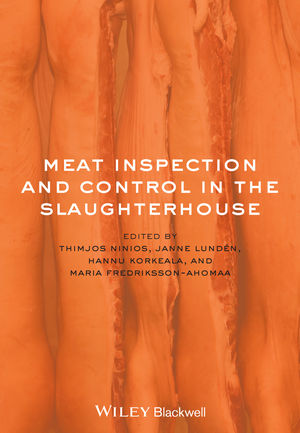Independent Thoughts
New initiatives to help small processors could affect food safety
USDA efforts to address market consolidation and food security could hold food safety implications.

Consolidation in the meat industry — meaning fewer but ever larger companies — has been an issue of increasing concern for small processors for some time. In an effort to mitigate the ongoing impacts arising from continued large-scale consolidation, the Biden administration and Congress have set out plans to spend approximately $1 billion toward providing support for small and mid-sized packers.
According to the White House, the meat and poultry sector is a textbook example of an industry that remains dominated by a limited number of companies that control a large percentage of the overall business. Some argue that the lack of broader competition can have an adverse impact on consumers, producers and the overall economy. But, because larger corporations will typically have more resources and scientific knowledge to direct toward the overall safety of their products, questions remain regarding the effect such these initiatives could have on product safety.
Reportedly, approximately 85% of the beef market is now controlled by just four meat packing companies. Likewise, the top four poultry processing firms control 54% of the market, while the top four pork processing firms control nearly three-quarters of the market. These packers, by virtue of their inherent market dominance, are able to exert extraordinary influence at both the consumer and farming ends of the food supply chain.
The U.S. Department of Agriculture has carefully studied the issue and solicited significant stakeholder input to identify near-term solutions. Per USDA’s analysis, the following objectives are critical to supporting the industry:
- expanding and diversifying meat and poultry processing capacity
- increasing overall producer income
- providing producers an opportunity to have ownership in processing facilities
- creating stable, well-paying jobs in rural regions
- raising the bar on worker health, safety, training, and wages for meatpacking jobs
- spurring collaboration among producers and workers
- prompting state, tribal, and private co-investment
- providing consumers with more diverse buying choices.
Among its internal initiatives, USDA will reduce the financial burden of overtime and holiday inspection fees for small and very small poultry, meat, and egg processing plants by 30% and 75% respectively, which it hopes will help lower-revenue processors compete more effectively. In addition, USDA is also working on a partnership with the Federal Trade Commission on means to enhance the ability of new businesses to remain competitive and to address alleged unfair competitive practices by large producers.
Combined, the new rules are intended to reduce costs to consumer while giving small to mid-size meat processors a better chance of succeeding in an industry dominated by a limited number of large companies. Of course, opponents are quick to point out that when government interjects itself into business, the effects are rarely predictable, and can often stifle, rather than promote, innovation and competition.
Only time will tell what positive and negative effects the new initiatives might will bring. While providing assistance to small and mid-size processors will likely have positive results, such as lower prices for consumers, these initiatives could have unintended consequences by adversely impacting the overall safety of the meat and poultry supply. Indeed, the limited number of large companies controlling the majority of the meat and poultry market have also worked to virtually eradicate the widespread presence of foodborne pathogens in finished products. If the market is drastically altered, allowing for a larger number of less sophisticated companies to process and sell meat and poultry products, the overall safety of the products could be impacted as well.
Looking for a reprint of this article?
From high-res PDFs to custom plaques, order your copy today!









